What makes me really sad... street dogs in Fiji
As some of the readers might know, my time living in Fiji is approaching five years in total - crazy! I have spent nearly a seventh of my life on this island in the South Pacific Ocean. And while I did and still do love many aspects of this country, the truth is that there are others that have become frustrating over time. Sure, if one moves to any country of your own choosing, one does so with a certain motivation, and I would expect that comes with a lot of love for that particular country (unless you'd only do so for a job that earns you a lot of money).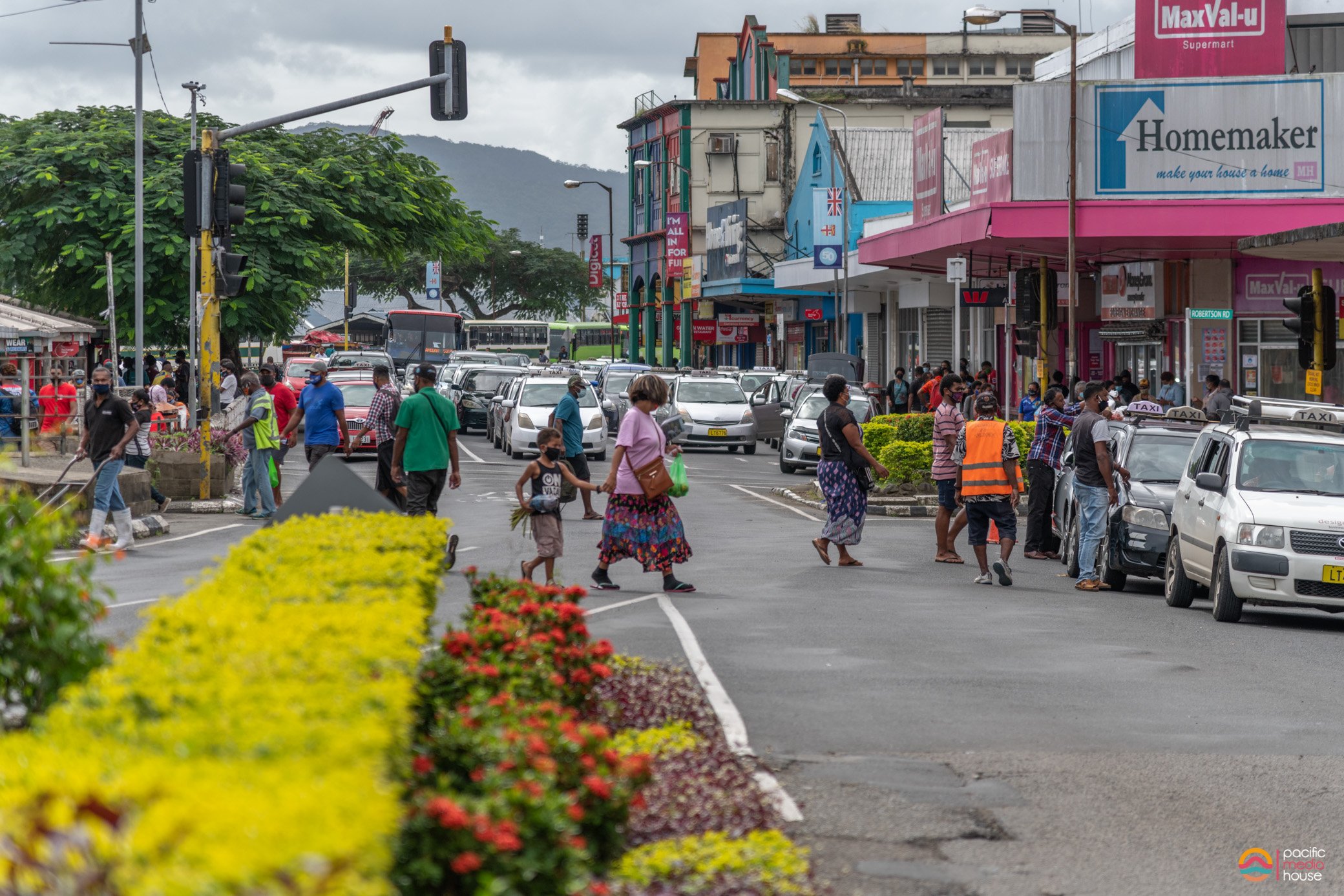 Fast forward to 2022, and we are still here and have arrived at the 'everyday life' that eventually settles in no matter the location. Sorting everyday tasks, going to work, paying our bills and so on. While are still lucky to experience new adventures, our life has also pretty much settled and some of the things that were new and exciting have become the norm. As this post is not intended to touch any of my work-related issues (which would be a topic of a whole new post), I want to focus on why I wanted to write this piece.
Fast forward to 2022, and we are still here and have arrived at the 'everyday life' that eventually settles in no matter the location. Sorting everyday tasks, going to work, paying our bills and so on. While are still lucky to experience new adventures, our life has also pretty much settled and some of the things that were new and exciting have become the norm. As this post is not intended to touch any of my work-related issues (which would be a topic of a whole new post), I want to focus on why I wanted to write this piece.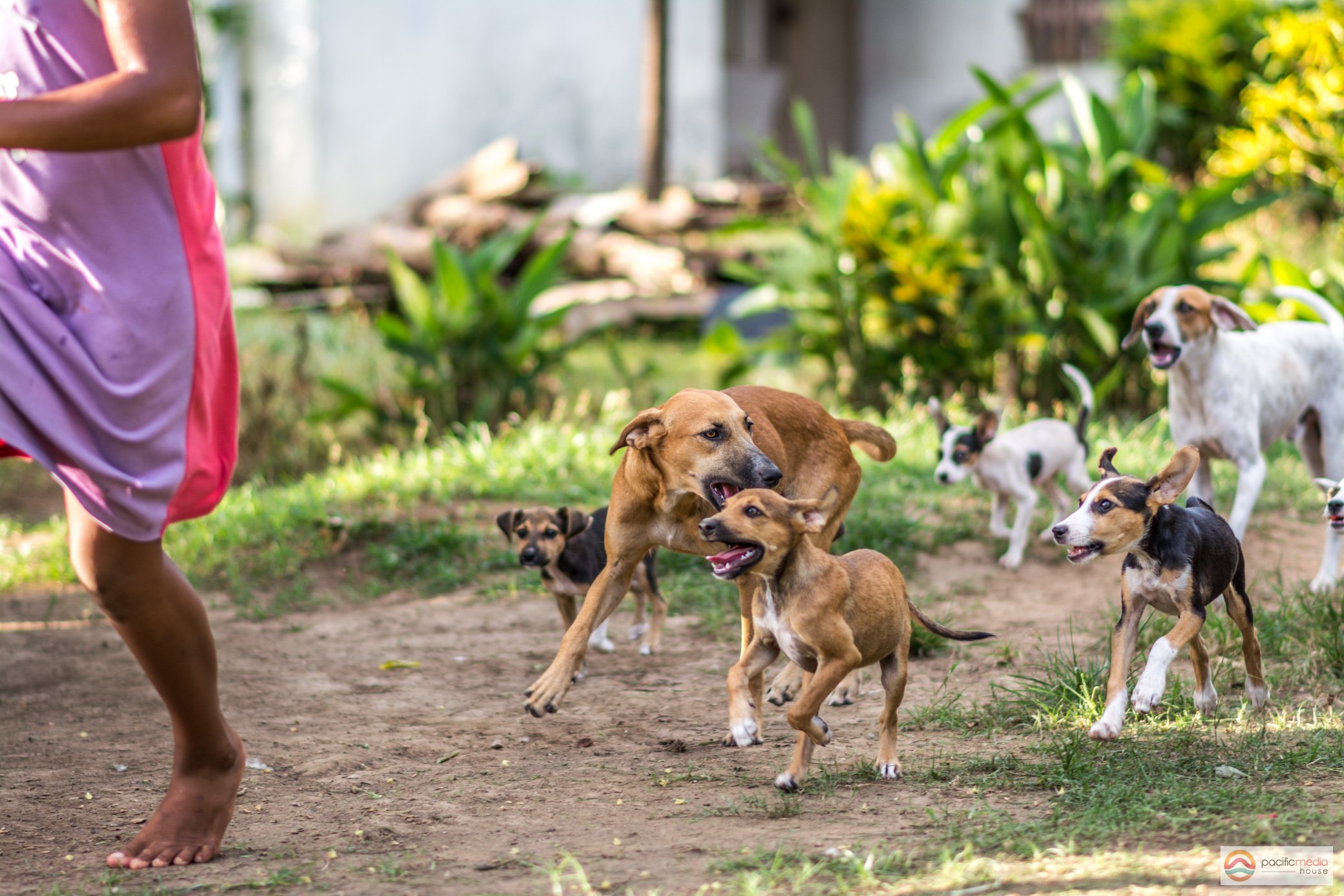
A love for animals
I am a person who has loved animals all his life. As a kid, I had two cats as pets, later my family had several guinea pigs and a rabbit, and I had several budgies over the course of my youth. While I shared the instinctive love for animals with probably all other kids on this planet, I also was raised to eat animals that were raised and killed for this sole specific purpose. Indoctrinated by the German society I have been brought up in, eating pigs, cows, lamb, chicken, and the 'typical' other western meats was the norm and no one thought went into changing that. Adverts promoting the strength and importance of consuming animal products pretty much plaster every town in Germany. And of course, drinking milk makes you healthy and your bones strong (which it definitely doesn't). I grew up into my twenties without ever really second-guessing that, and I also never ventured into any thought experiments regarding the treatment of animals beyond the standard pet care that we in western countries are used to.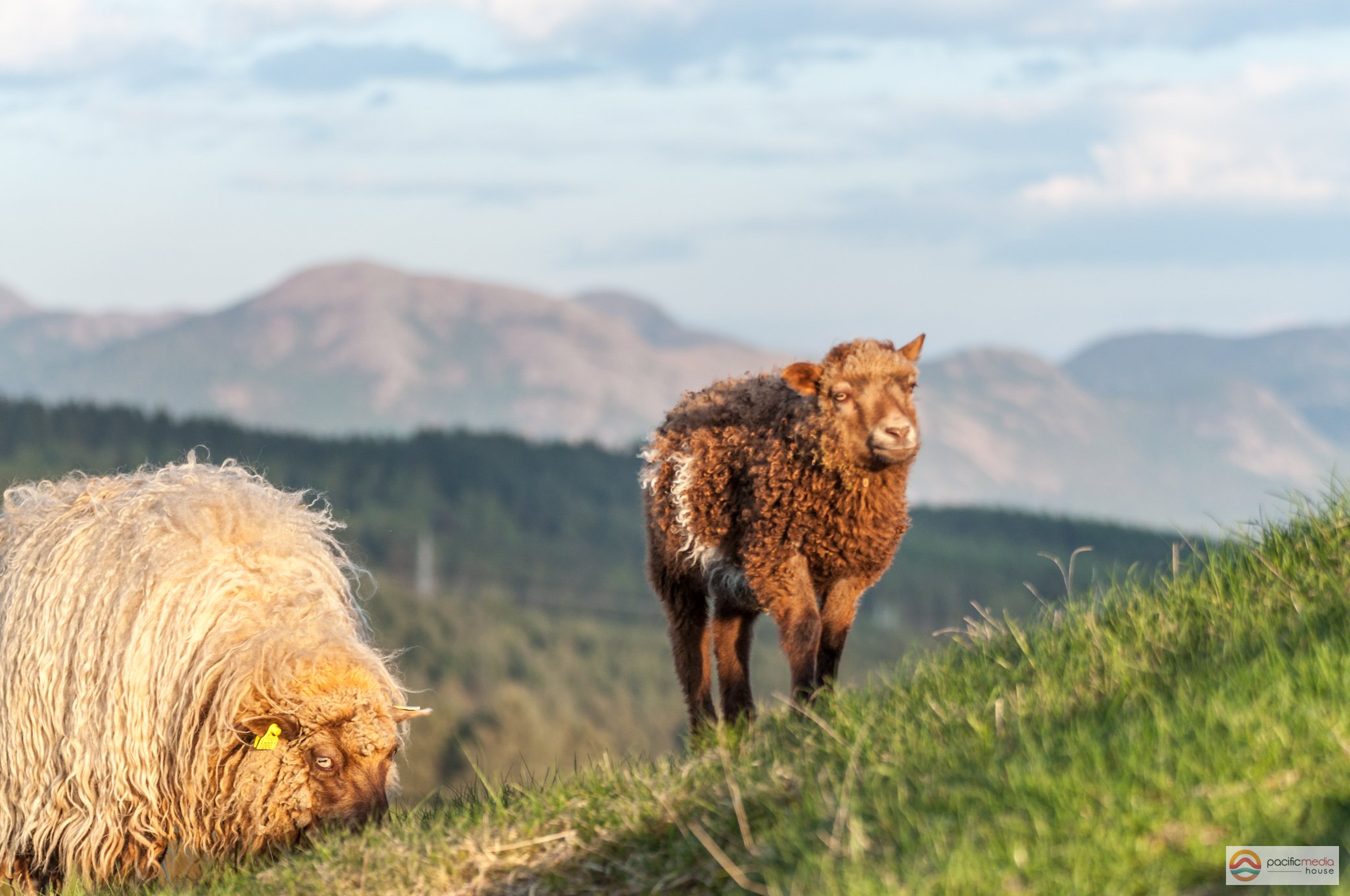 Funny how things can change. Nowadays, I live fully pant=based and have been doing so for nearly eight years. The treatment of animals has become a centre worry and point of focus in my life. And it all began completely naturally when I was living in Egypt and looked after Rox, a wonderful Rottweiler I was taking care of for a few months in the wonderful little town of Dahab.The way Rox and I interacted with each other somehow opened my eyes to the hypocrisy I was living - loving a dog to bits and in the next moment eating a salami sandwich made from pigs, that are just as individual, playful, loving, caring, and the list goes on as dogs are. I was honestly confused. What was going on? Was I really living this weird hypocrisy all my life?
Funny how things can change. Nowadays, I live fully pant=based and have been doing so for nearly eight years. The treatment of animals has become a centre worry and point of focus in my life. And it all began completely naturally when I was living in Egypt and looked after Rox, a wonderful Rottweiler I was taking care of for a few months in the wonderful little town of Dahab.The way Rox and I interacted with each other somehow opened my eyes to the hypocrisy I was living - loving a dog to bits and in the next moment eating a salami sandwich made from pigs, that are just as individual, playful, loving, caring, and the list goes on as dogs are. I was honestly confused. What was going on? Was I really living this weird hypocrisy all my life?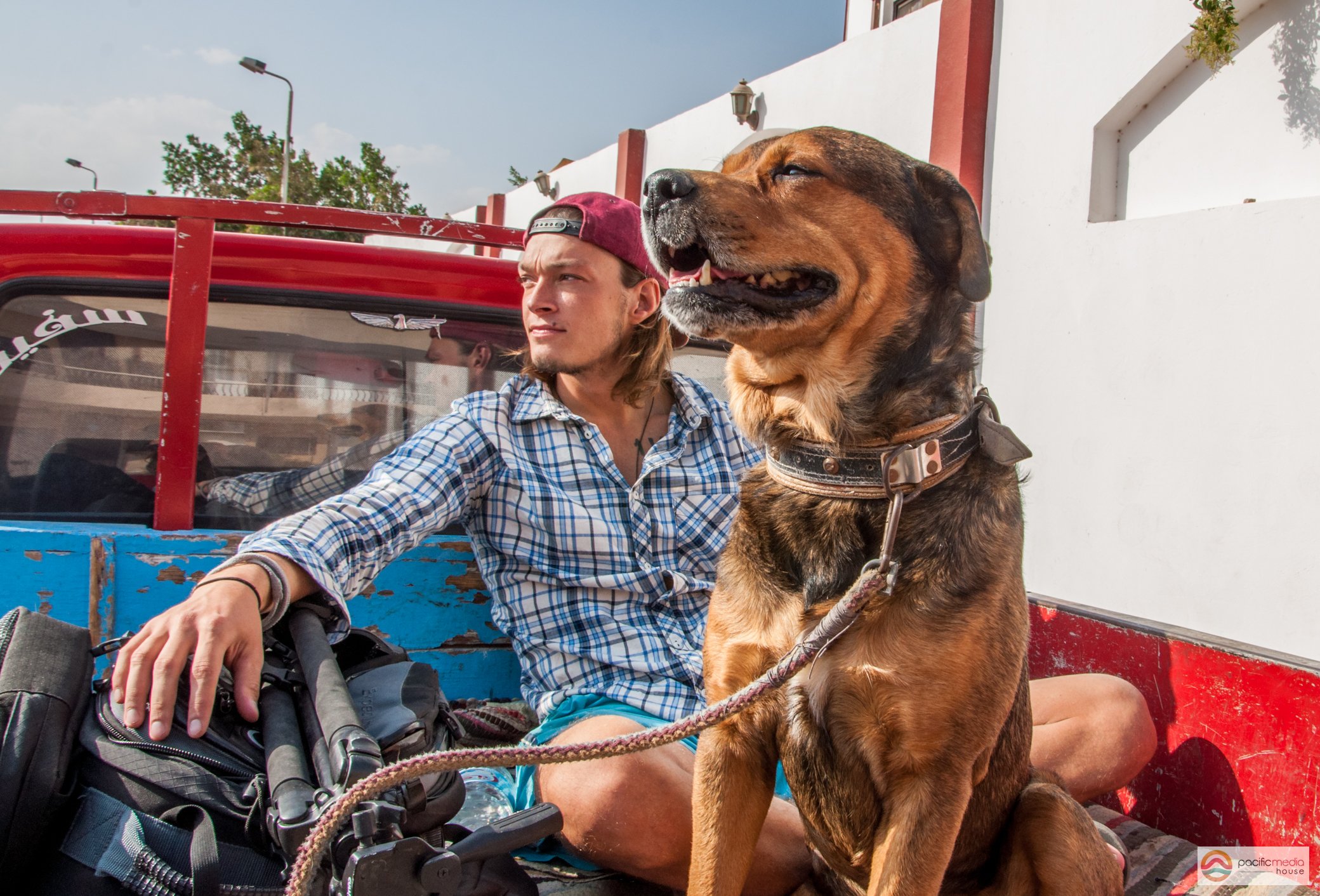 Over the course of a few days, these thoughts haunted me, and I started digging into the internet, reading up on these issues. It became clear to me that there was one thing I could pretty much immediately do: turn vegetarian. I was determined not to support this cruel and terrible industry anymore with a single cent of my own money. No way in hell. After about a year of taking many deeper dives into the topic, I eventually turned fully plant-based. It wasn't easy at first, especially in the first year I just threw cheese on pretty much everything to compensate for the 'loss' of other meats. But we humans are creatures of habitats, and what I can tell you is, today my diet is as natural to me as breathing. No cravings, not at all. If at all, it is the opposite and I feel more stronger convinced today than I did eight years ago.The issues surrounding animal agriculture are obvious and apparent, and at least in Germany, nearly everyone knows about them but most choose to turn a blind eye to them. Without making this post about veganism or dietary choices, I feel this information is critical to what I am going to write about.
Over the course of a few days, these thoughts haunted me, and I started digging into the internet, reading up on these issues. It became clear to me that there was one thing I could pretty much immediately do: turn vegetarian. I was determined not to support this cruel and terrible industry anymore with a single cent of my own money. No way in hell. After about a year of taking many deeper dives into the topic, I eventually turned fully plant-based. It wasn't easy at first, especially in the first year I just threw cheese on pretty much everything to compensate for the 'loss' of other meats. But we humans are creatures of habitats, and what I can tell you is, today my diet is as natural to me as breathing. No cravings, not at all. If at all, it is the opposite and I feel more stronger convinced today than I did eight years ago.The issues surrounding animal agriculture are obvious and apparent, and at least in Germany, nearly everyone knows about them but most choose to turn a blind eye to them. Without making this post about veganism or dietary choices, I feel this information is critical to what I am going to write about.
Back to Fiji and the street dogs
This might be news to many people living in western countries, but street dogs are a gigantic problem in nearly any developing country. Fiji is no exception. In fact, I visited SPCA, Suva's only (!) shelter, yesterday to take some photos for them, and one of the employees told me about their current quest to find out about the number of street dogs in Fiji, starting with the capital city of Suva.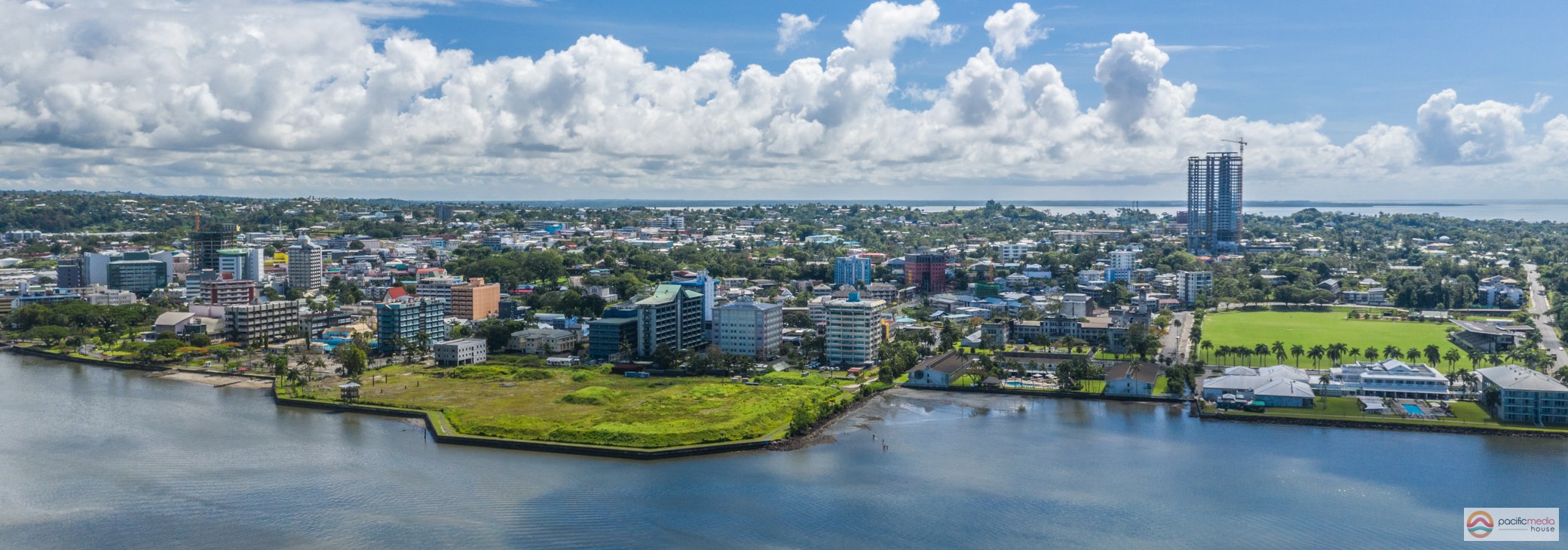 For some context, Suva has less than 400.000 inhabitants, yet makes up nearly 50% of the country's population. Using an app, the team of SPCA drives around town and documents the amount and location of any dogs in the street they encounter. The app then extrapolates that number and spits out an estimate. Just for Suva, he told me that number seems to be somewhere in the 40.000 dogs range! It is a basic approach but a good way to establish a baseline which is to date still missing here in Fiji.
For some context, Suva has less than 400.000 inhabitants, yet makes up nearly 50% of the country's population. Using an app, the team of SPCA drives around town and documents the amount and location of any dogs in the street they encounter. The app then extrapolates that number and spits out an estimate. Just for Suva, he told me that number seems to be somewhere in the 40.000 dogs range! It is a basic approach but a good way to establish a baseline which is to date still missing here in Fiji.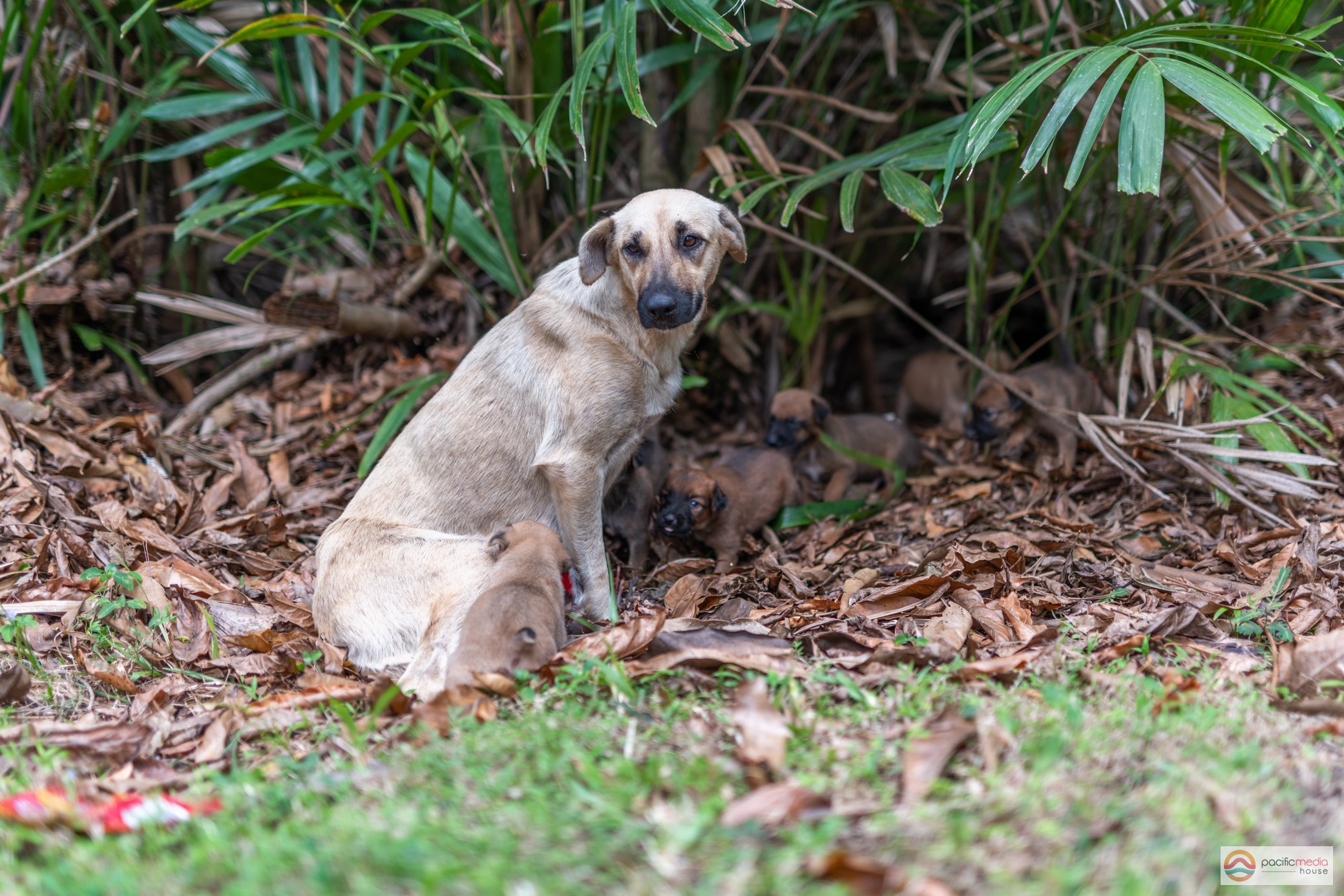 Even if it was only half of that or even a quarter - imagine 10.000 poor souls trying to survive on the streets. Having adopted three street dogs ourselves and knowing how much personality, character and feelings they have, this simply breaks my heart. I am sure other animal owners can relate - dogs (as do cats, pigs, cows, and the list goes on) certainly have personalities, feel pain, suffer, are happy, endure pain and long for love as many other animals, including us humans do.
Even if it was only half of that or even a quarter - imagine 10.000 poor souls trying to survive on the streets. Having adopted three street dogs ourselves and knowing how much personality, character and feelings they have, this simply breaks my heart. I am sure other animal owners can relate - dogs (as do cats, pigs, cows, and the list goes on) certainly have personalities, feel pain, suffer, are happy, endure pain and long for love as many other animals, including us humans do.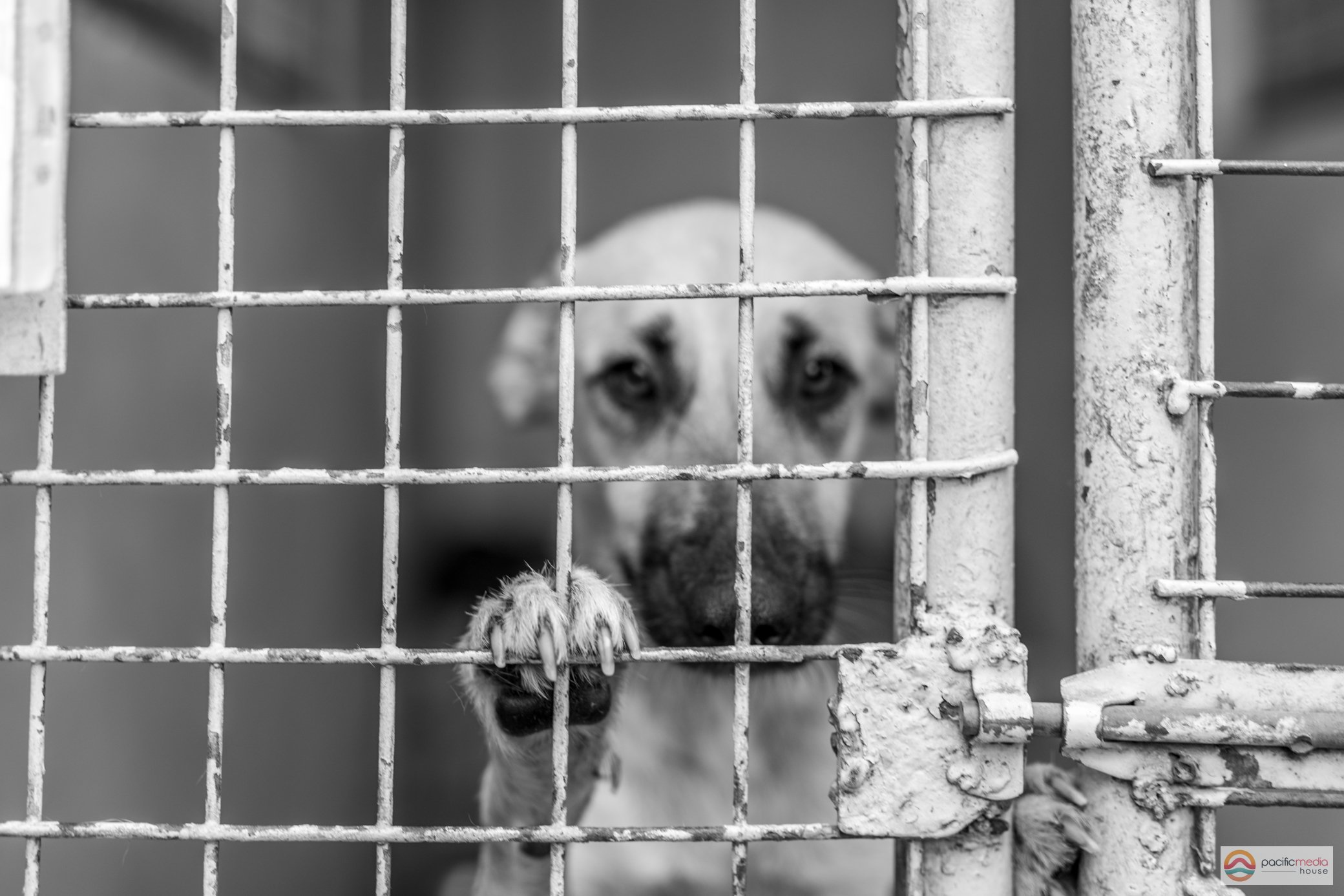 While a small percentage of these dogs may be looked after in one way or another, thousands of others suffer horrible fates. Cruel and sick violence against animals is common - I myself have seen people pouring boiling water over a dog because the barking annoyed them. Dogs are generally feared and seen as dangerous. It is often apparent in young children who already tease them, throw stones at them or even beat them with sticks or their bare hands.
While a small percentage of these dogs may be looked after in one way or another, thousands of others suffer horrible fates. Cruel and sick violence against animals is common - I myself have seen people pouring boiling water over a dog because the barking annoyed them. Dogs are generally feared and seen as dangerous. It is often apparent in young children who already tease them, throw stones at them or even beat them with sticks or their bare hands.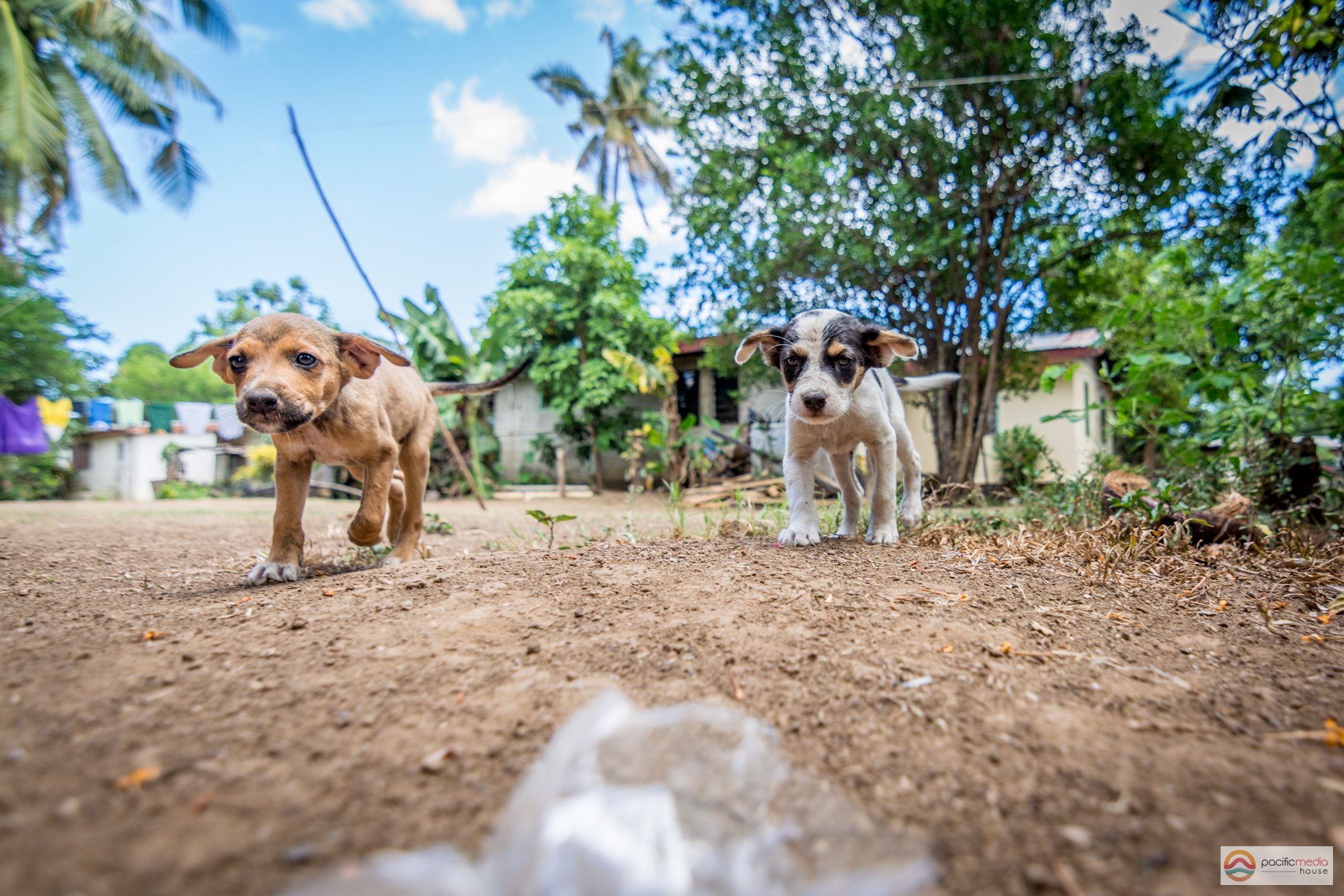 There is mostly no value attached to dogs, not even a simple "this dog is an individual; he or she lives a life, so we need to respect it"-value, but dogs are often seen and referred to as pests. And I surely don't want to do any injustice to the thousands of Fijians who are looking caringly and lovingly after their animals and who are doing a wonderful job in doing so. This doesn't change the fact, though, that this is an endemic problem of gigantic size in Fiji and that the general mindset of the population is the one described.
There is mostly no value attached to dogs, not even a simple "this dog is an individual; he or she lives a life, so we need to respect it"-value, but dogs are often seen and referred to as pests. And I surely don't want to do any injustice to the thousands of Fijians who are looking caringly and lovingly after their animals and who are doing a wonderful job in doing so. This doesn't change the fact, though, that this is an endemic problem of gigantic size in Fiji and that the general mindset of the population is the one described.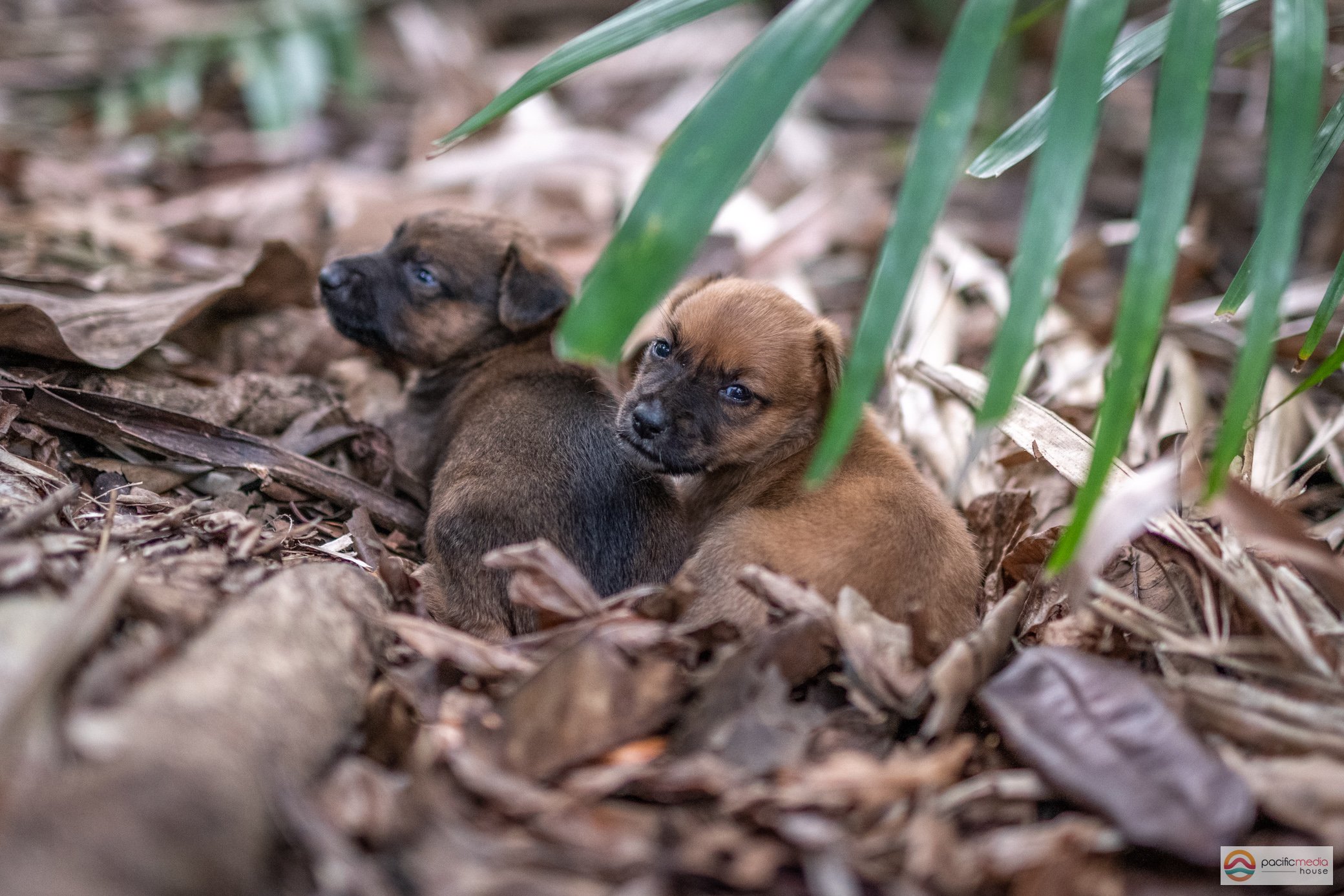
How to help the street dogs in Fiji?
Helping street animals has grown to be a consuming personal issue for me and my inability to help on a larger scale literally physically pains me. Dogs or cats or any other animals for the latter are NOT able to speak for themselves, have no choice, and on top of that, are extremely loyal (at least dogs) even if mistreated. Having many of them living miserable lives is a thought that is impossible to bear. Visiting the shelter, from where we also adopted our first dog Kaia more than three years ago, is very hard for me.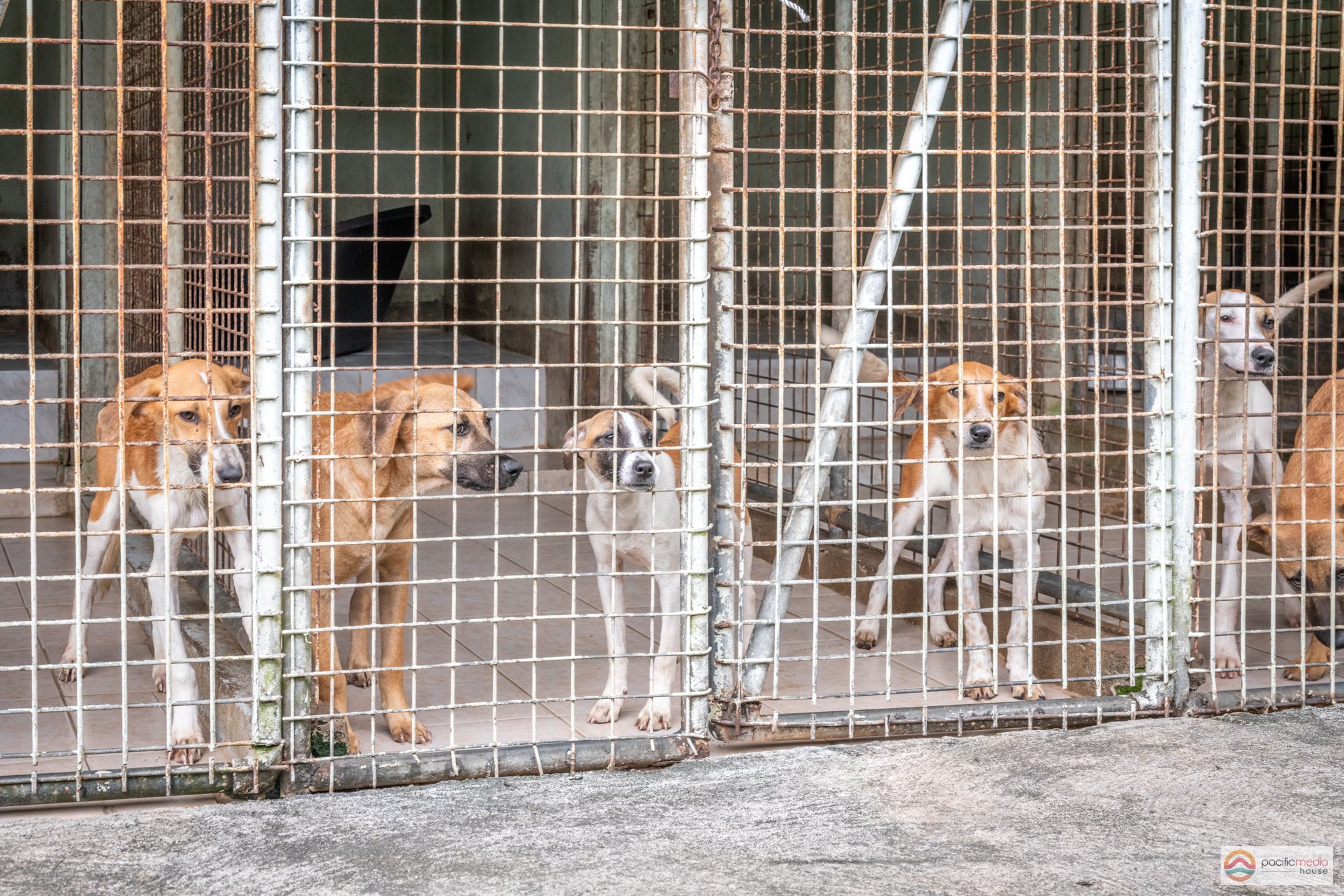 While SPCA (Society for Prevention of Cruelty to Animals) does great and very much-needed work in Fiji, being in there and seeing the dozens of animals in their cages make some incredibly sad. The kennels are small and extremely crowded and there is a constant sound wall of barking. It is pure stress for most of these dogs. But then what is the alternative? Here, at least they receive treatments, are de-sexed and then with a little bit of luck re-homed to a caring forever home.When I got back home to edit the photos of the day, it really broke my heart. I just couldn't do it in one go. When I had to cry, I stopped for a few minutes, and later started again. Several times. The images are hard to bear and the injustice and suffering these animals generally have to go through is simply terrible and unfair.
While SPCA (Society for Prevention of Cruelty to Animals) does great and very much-needed work in Fiji, being in there and seeing the dozens of animals in their cages make some incredibly sad. The kennels are small and extremely crowded and there is a constant sound wall of barking. It is pure stress for most of these dogs. But then what is the alternative? Here, at least they receive treatments, are de-sexed and then with a little bit of luck re-homed to a caring forever home.When I got back home to edit the photos of the day, it really broke my heart. I just couldn't do it in one go. When I had to cry, I stopped for a few minutes, and later started again. Several times. The images are hard to bear and the injustice and suffering these animals generally have to go through is simply terrible and unfair.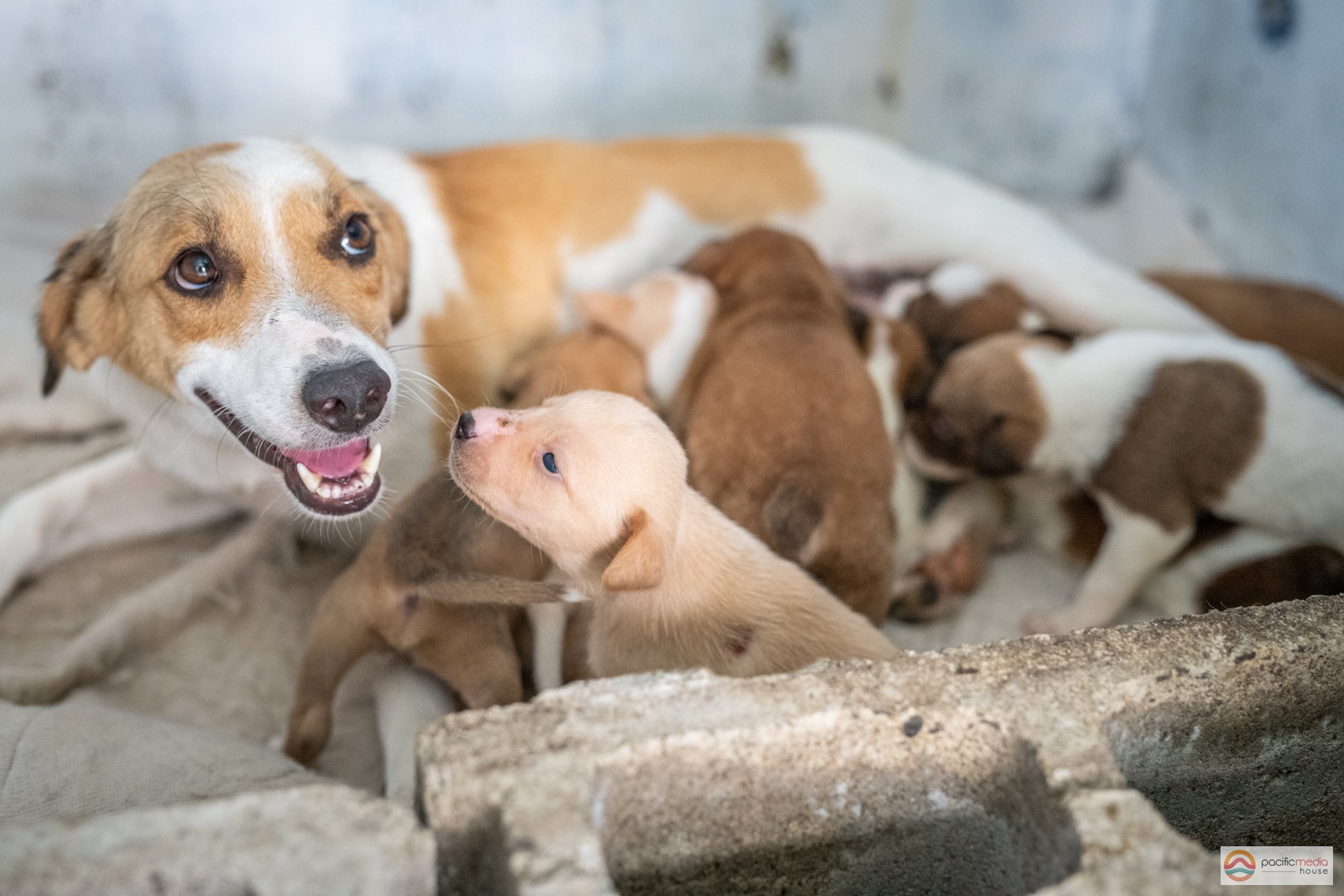 It is almost a little strange - I think I am a very resilient and "tough" person in many ways, but the animals really do come through to me. And their inability of voicing their concerns and pains and the inability of changing the situation of their own power is almost unbearable to me. If these thoughts are going 'too far' for you, you are welcome to close this window. But if this is similar to what you think, please get in touch and let us think together of a way how to change this. I know it all seems like just a drop in the ocean, but a drop can go a long way .. Changing the lives of just a single individual animal is making a huge difference to them. Changing more is even better. And the credo I adopted here in Fiji is "one dog at a time.'
It is almost a little strange - I think I am a very resilient and "tough" person in many ways, but the animals really do come through to me. And their inability of voicing their concerns and pains and the inability of changing the situation of their own power is almost unbearable to me. If these thoughts are going 'too far' for you, you are welcome to close this window. But if this is similar to what you think, please get in touch and let us think together of a way how to change this. I know it all seems like just a drop in the ocean, but a drop can go a long way .. Changing the lives of just a single individual animal is making a huge difference to them. Changing more is even better. And the credo I adopted here in Fiji is "one dog at a time.'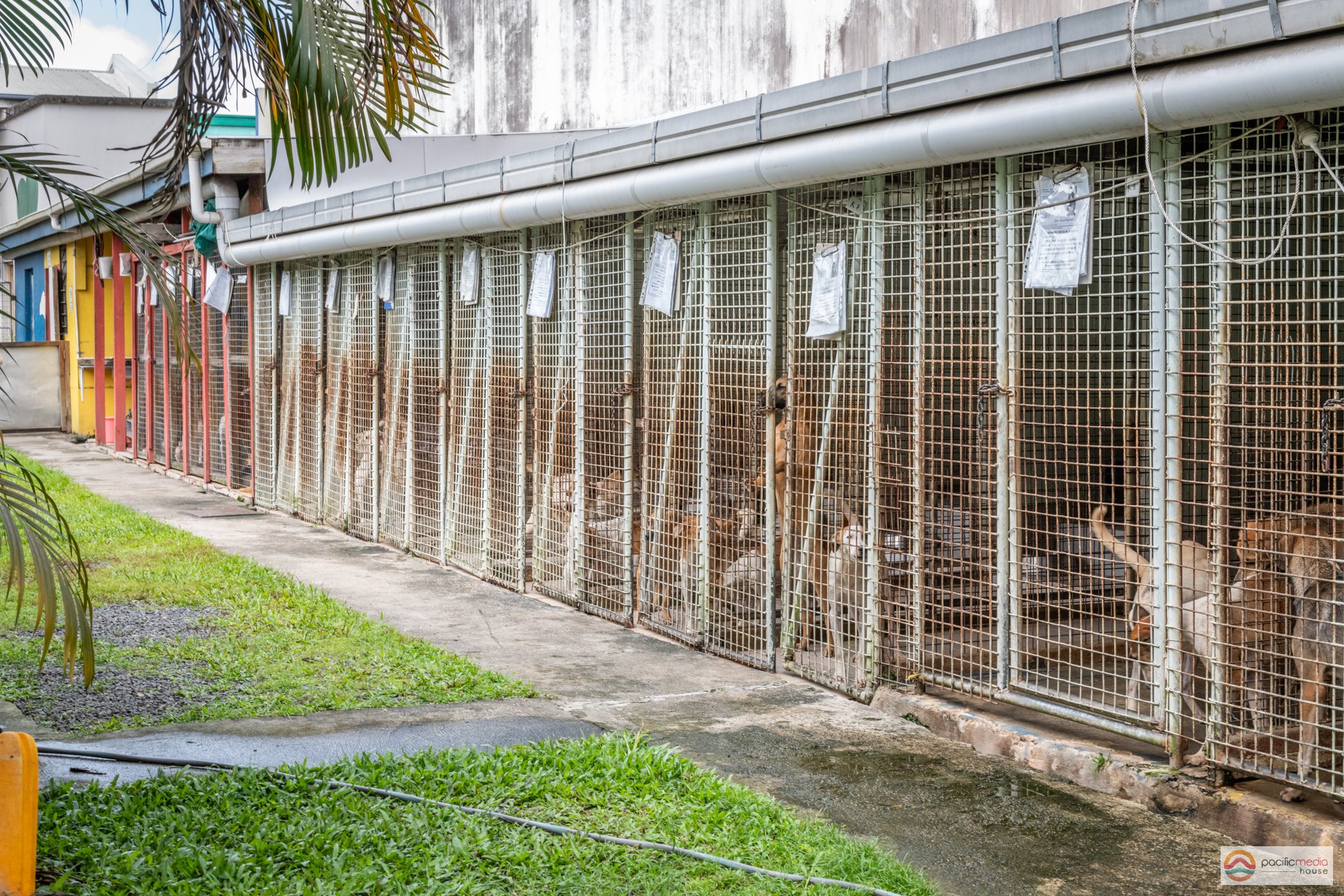
If you can, please donate
I don't have any solutions to present, but if any of you readers wants to help from wherever you are, please donate. Every Dollar counts. There are only a few animal shelters here in Fiji, all of which are chronically underfunded and all of which need money to continue their work.
- SPCA (Society for Prevention of Cruelty to Animals) - www.spcafiji.com
SPCA is the only shelter in Fiji's busiest population centre, the capital city of Suva. Please click this link which will take you to their donation page.
- The Greater Good Foundation - https://greatergoodfiji.com
The Greater Good Foundation is located in the northwest of Fiji's main island Viti Levu, a registered non-profit organisation and Fiji's only animal sanctuary. They have more than 150 dogs currently and are in desperate need of funding. Please click this link to donate whatever you can spare.
- Animals Fiji - www.animalsfiji.org
Animals Fiji is a registered charity based in Nadi, running a Clinic there with two full-time veterinarians and another smaller clinic on Fiji's second-largest island Vanua Levu. Please click here to donate to Animals Fiji.
- PASH (Pacific Animal Shelter and Hospital) - https://pashfiji.com
PASH operates Fiji's first modern, state-of-the-art veterinary hospital treating local pets, maintaining the country's largest shelter, and re-homing Fijis abandoned and neglected animals. Please click here to donate to PASH. THANK YOU!
THANK YOU!

